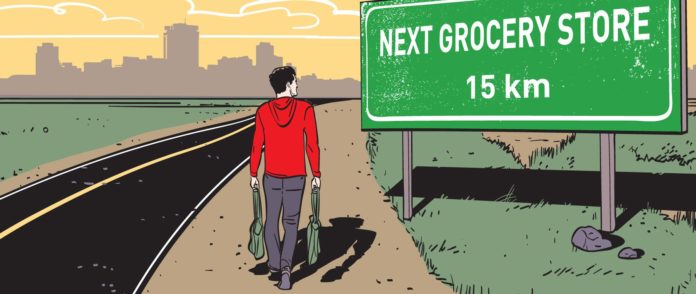
By Matt Kyle | Staff Writer
The United Nation’s World Food Programme (WFP) said the number of people in need of food assistance doubled during the pandemic. David Beasley, the director of the WFP, told CNN the pandemic and climate crises are creating a “perfect storm” that is driving food insecurity around the world, and he called on billionaires to aid in the fight against hunger.
In its headline, the CNN article said, “2% of Elon Musk’s wealth could help solve world hunger.” Elon Musk said on Twitter he would sell Tesla stock and donate it if the WFP could prove $6 billion could end world hunger. Beasley responded and said, “Headline not accurate. $6B will not solve world hunger, but it WILL prevent geopolitical instability, mass migration and save 42 million people on the brink of starvation.”
Solving world hunger is a complex issue because of its many causes, and it’s prevalent nearly everywhere — even in Baylor’s own backyard. Kayla Mize, Waco regional director for the Baylor Collaborative on Hunger and Poverty (BCHP), said a 2019 census showed 15.7% of residents of McLennan County and 22.5% of children in McLennan County suffered from food insecurity.
Mize said the BCHP has many programs designed to combat hunger and food insecurity in Waco and across Texas, such as assisting school districts in implementing child nutrition programs and building community coalitions among nonprofits and other organizations.
Mize said food insecurity can be caused by a number of factors.
“It can be caused by underemployment,” Mize said. “It can be caused by education level. It could be caused by access to health care. A lot of what we’re focusing on now is equity and race equity specifically, because we know that there are racial wealth gaps and less access to housing and health care and education. We also see higher rates of mass incarceration, and all of that leads to higher rates of food insecurity.”
Another factor in food insecurity is food deserts — areas with limited access to affordable and nutritious food. There are several areas in Waco where residents don’t have ready access to food, including the area around the Baylor campus.
Years ago, there was an H-E-B on Speight Avenue and 12th Street. That store, along with another on Valley Mills Drive, was shut down in order for an H-E-B Plus to be built on Valley Mills Drive near Interstate 35, leaving behind food deserts.
Mize said transportation is a major factor preventing people from being able to access grocery stores.
“Waco is a little bit different from other cities in that we don’t have a super robust public transportation system,” Mize said. “So even if there is a grocery store that is within a certain amount of distance, that wouldn’t be considered a food desert. Well, if you don’t have the transportation, it’s still going to be hard to access that. Having transportation is something that’s really important in [determining] whether a community is healthy.”
The BCHP also has programs at Baylor designed to combat food insecurity among the student body. Sarah Madsen, a research assistant in the Baylor School of Education who works with the food insecurity group on campus, said there is a “web of resources” like Swipe Out Hunger, The Store and the Fridge project.
Madsen said results from the New to BU survey show 15% to 25% of students said they either skipped meals or could not eat three meals a day. She said the programs at Baylor are meant to combat different types of food insecurity.
“The experience of food insecurity is very different,” Madsen said. “If you’re a freshman and it’s, ‘Hey, I just can’t get to the dining hall in time.’ For seniors, it may be, ‘I’m working a ton, and I live off campus, and I have $20 a week for groceries.’ You want to provide this food resource as one piece of a web of resources. Serving students well and doing that — not embarrassing them or further stigmatizing students who may feel like, ‘I don’t really fit in on campus because I can’t go to Penland with my friends.’”
Mize said students can get involved in efforts to combat food insecurity in a variety of ways.
“You can donate to us,” Mize said. “You can donate to the local food pantries here in Waco or elsewhere. You could always volunteer. A lot of food pantries — a lot of churches that do Thanksgiving meals — will be looking for volunteers to help pack up Thanksgiving boxes and serve those. Beyond that, it’s paying attention to the policies that impact our communities. And then of course, going and working for these organizations is helpful.”





